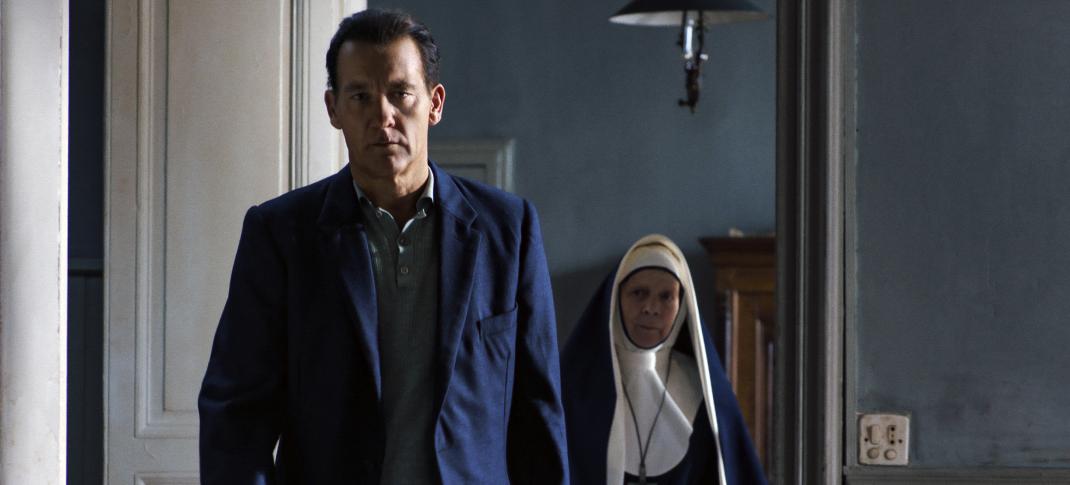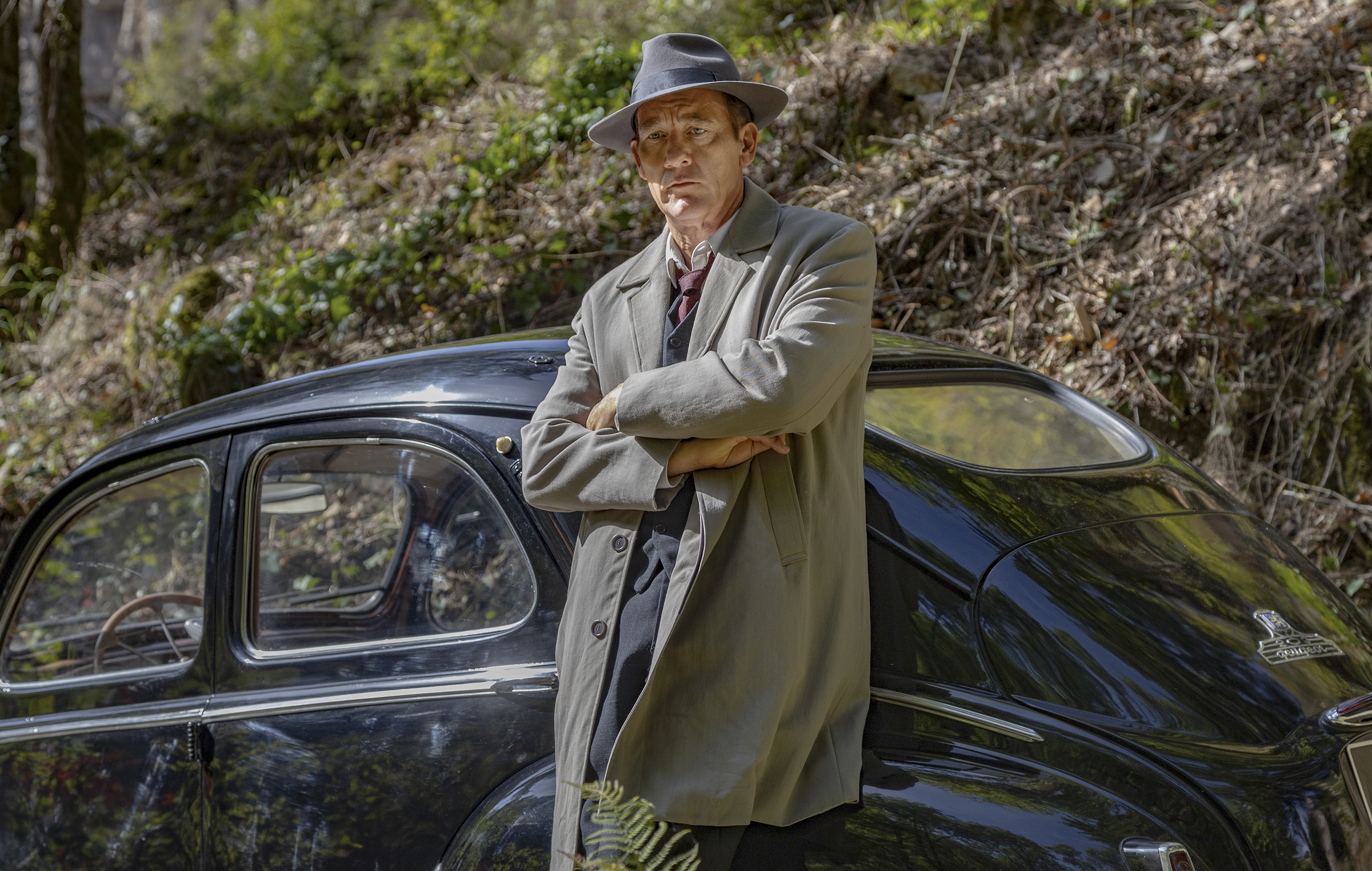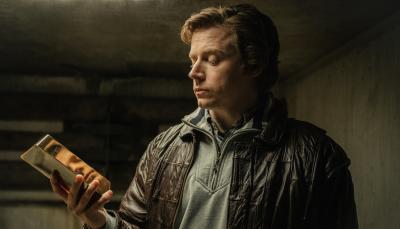Acorn TV's 'Monsieur Spade' is a Thoughtful & Robust French Oddity

Clive Owen as Monsieur Spade in 'Monsieur Spade' Season 1
AMC
In 2020, some 62 million households watched The Queen’s Gambit, the Anya Taylor-Joy-led miniseries about a fictional female chess master written and directed by Scott Frank. (Frank created the show with Allan Scott but wrote and directed every episode). With such tremendous, buzzy streaming momentum under him, it’s curious that his next project – of which he’d co-write and direct every episode – would be a show about Humphrey Bogart’s character in the 1941 film The Maltese Falcon, Sam Spade. A post-war Spade (Clive Owen) is trying to retire in provincial France but becomes entangled by intrigue and conspiracies surrounding a young girl he chaperoned to France years prior.
At absolutely no point in its six-hour season does Monsieur Spade resemble the slick, electric entertainment that hooked so many Queen’s Gambit fans, nor is it clear why someone who delivered one of Netflix’s all-time greatest hits would make this leisurely-paced, talky miniseries their follow-up. That doesn’t mean it’s a misstep – Monsieur Spade is a thoughtful and robust detective story, interested in character and real-world history, with a game French cast led by a sufficiently hardboiled and committed Owen. It’s just never quite clear why it exists, or in the form it does.
Of course, this isn’t necessarily a bad thing. The Queen’s Gambit was a huge hit but far less dense as a story than Monsieur Spade – flashiness doesn’t inherently equally great craft. Moving away from Netflix after a couple of well-received projects makes sense for Frank – AMC is not a fintech streaming service and offers more support and diligence to an experienced writer than a flailing Netflix likely would. The Queen’s Gambit probably allowed him to do something he was passionate about, and it’s a good thing that he chose to make a show that Netflix wouldn’t touch in a million years.
Monsieur Spade is as much about a France in crisis as it is about its San Franciscan detective: post-World War II, France’s colonial reach became an urgent concern, with uprisings and violent retaliations spurting up in Algerian and Vietnamese territories. When Spade arrives in the quiet Southern town of Bozouls in 1955 to return the young Teresa to her estranged, vagabond father, Philippe Saint Andre (Jonathan Zaccaï), it initially seems a million miles away from the front lines of imperial decay.
An eight-year jump in the opening act of episode one reveals Spade has nestled himself into a life of easy living and bad French speaking – having married a French woman he met on his first day in Bozouls, who has recently died. In ‘63, where the majority of Monsieur Spade unfolds, it’s clear that France’s colonial excursions have a clear but insidious impact on nearly everyone in the town – even for the few that are not directly linked to the recent Algerian War.
There’s a seething tension, a resentful mood to the civilians – and Spade is stuck in the middle of it, checking in on a convent boarding school where a surly Teresa is growing up (played as a teenager by Cara Bossom), getting intel from the obstinate chief of police Patrice (Inglourious Basterds’ Denis Ménochet) and trying to calm marital tensions between nightclub owning couple Marguerite (Louise Bourgoin) and Jean-Pierre Devereaux (Stanley Weber). Philippe is allegedly skulking around the town, and after the convent is violently attacked and someone fires shots at Teresa, Spade must untangle the messily suppressed past of his new home as well as the trauma of a still-bleeding France.
As a director, Frank’s strength lies with performers and less with visual craft – the international cast is strong, but noir is as much an aesthetic as it is a type of story. The moral murkiness of schemes, corruption, and human weakness should be mirrored by the shadowy, smoky, and shady look of Sam Spade’s world. This isn’t the case in the plainly shot Monsieur Spade. The argument could be made that the more muted, unflashy look and feel of the series is a sign of Spade being out of place in his provincial locale, but the fact remains that Sam Spade was a character fleshed out and detailed by the camera as much as by a performance, and often the accented snark of Owen is left out to sea in a bland-looking show.
Despite the rigor that’s gone into mapping out the conspiracy that soon grips Bozouls by the throat – involving the smuggling of Algerian refugees away from warring intelligence forces – Monsieur Spade stalls in its second half. Spade deploys suitably brusque and brutish methods of crime-solving but the sheer weight of character backstories and hidden agendas doesn’t just flatten the interest piqued by the early episodes, it loses our gumshoe protagonist somewhere among a slog of hastily introduced twists and unconvincing resolutions. Our central macguffin, in this case a person, just doesn’t feel like it belongs in a series so committed to giving French postwar history a coat of noirish paint.
Frank and co-writer Tom Fontana’s level of attention to historical detail, especially when it comes to fringe nationalist factions, is of note when compared to modern detective dramas, and yet it’s unraveled in a way that prevents Monsieur Spade from truly singing. It would be nice if the oddity that is a "Sam Spade Takes Europe" series was good enough to warrant similar passion-driven dramas being greenlit. Hopefully, someone will take another crack at it. Marlowe Down Under, anyone?
Monsieur Spade premieres on Sunday, January 14, on Acorn TV and AMC+, with the episode airing on AMC’s linear cable channel that evening. All three will release the series on a one-episode-per-week schedule to follow through February 18, 2024.





